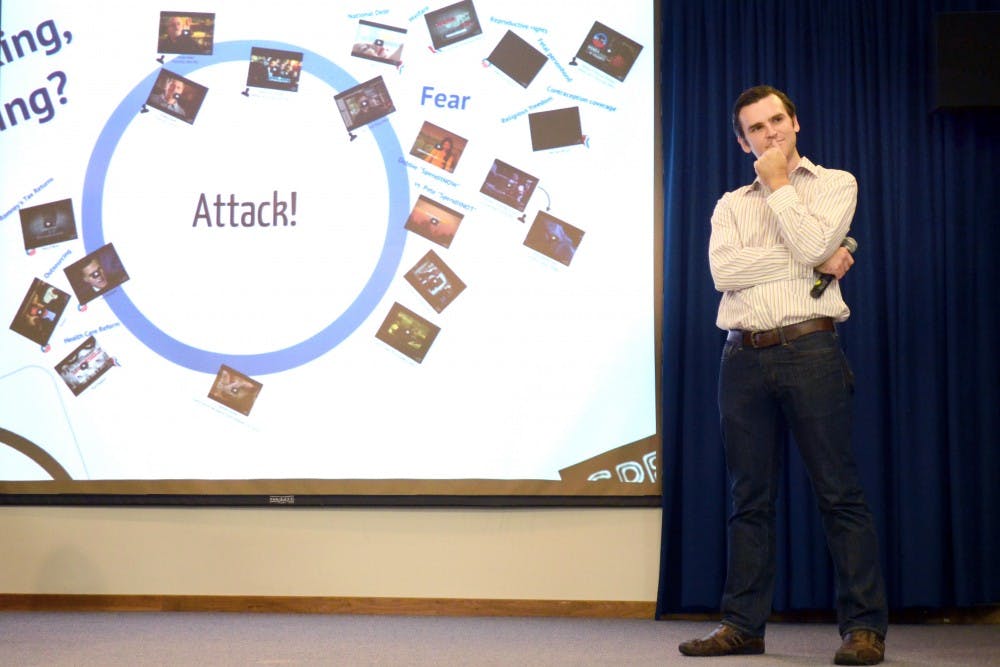Speak Up, Speak Out event focuses on political messages, public interpretations

Subliminal messages and alienation in politics were just two topics attendees of Wednesday’s Speak Up, Speak Out event had an opportunity to discuss.
Andrew Blom, assistant professor in the philosophy and religion department, hosted the event, which focused on campaign messages. Blom picked the topic due to the upcoming election in hopes of encouraging political conversation among students.
"The people are more in-tuned during election year to the policies," Blom said.
The panel was split into four sections: covering attack ads, party positions, extreme party views and message control. The discussion, however, focused more on subliminal messaging, alienation of demographics and political parties taking messages out of context.
Video clips from the Democratic and Republican national conventions, as well as independent attack advertisements, fueled the discussions between the panel and students.
Saginaw freshman Demetrius Randolph said a clip from GOP candidate Mitt Romney's speech at the Republican National Convention held an unspoken message.
"As Romney was speaking to the audience — which was mostly white people — it seemed like (there was a) racial undertone ... and that completely exiled an entire race of Americans," Randolph said.
Panelists for the event included associate professor of English Melinda Kreth, Traverse City senior and Chair of the College Republicans Megan Gill, Otisville junior and President of the College Democrats Alex Middlewood, English professor Bill Spruiell and assistant professor of political science Chris Owens.
Randolph was not the only one who felt exiled by the political parties.
"People want to see who they associate with," Saginaw senior Krystin Martinez said.
Martinez said political parties both market themselves to a certain demographic and a particular audience, which is shown through the political ads. But in those ads, especially attack ads, which are independently funded, many liberties are taken, she said.
"Everything you say can become a sound byte," Gill said. "Discussion over things are taken out of context."
What candidates are saying is not the only thing under attack. In many privately-funded advertisements, opposing group's policies are coming under fire, but most don't hold very much truth.
"(They) are gross exaggerations of the actual policies," Gill said.
While many of the topics were serious, not all of the discussions following the campaign ads were.
"Some of it was over-the-top and ridiculous, and it's fun to point that out," Blom said.
Blom said the overall discussion and panel was constructive, regardless of how many students had knowledge of political issues beforehand.
"There was a lot to talk about — almost too much," he said.
Middlewood didn't feel as optimistic about the discussions.
"People didn't want to talk about the message," she said. "It is important to realize the true message behind the ad and not just the content."
Rochester sophomore Noelle Beck agreed with Middlewood.
"It was a little bit more opinion-based," Beck said. "I thought it would be more informative, (but I got) more clarity on issues, and (the event) brought new ones that I didn't know about to my attention"



